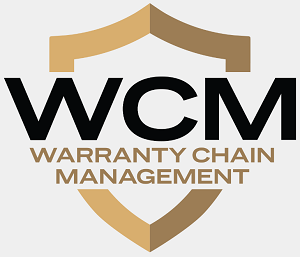February 7, 2006 |

|
ISSN 1550-9214 |
Extended Warranty Bankruptcies:Like a tree falling in the woods, recent dot-com warranty failures went largely unnoticed by the media and unpredicted by either the regulators or the ratings agencies. So how can a customer be expected to make the right choice?Why does the extended warranty business always seem to be entangled in controversy? Insiders within the extended warranty industry always point to the automotive sector as the source of most of the problems. Those within the automotive extended warranty business always point to the dot-com sales companies as the most problem-prone part of the business. They point to the suspiciously low prices and questionable business ethics of their now-defunct competitors as clear signals that these types of companies should be avoided. But how can a poor consumer tell a good automobile extended warranty company from a bad one? Last year, a pair of dot-com warranty administrators collapsed without attracting much attention at all. Warranty Week noticed only because their emails bounced, and their phones were disconnected. And here it is months later, and we'd bet there are still thousands of policyholders who won't find out their extended warranties are worthless until they try to get their cars fixed. No doubt, some of them will conclude that it's all a big scam being run by an industry full of crooks. But we know better. While there will always be dealers, retailers, administrators and insurers who take the money and run, on balance the extended warranty industry is populated by legitimate businessmen who pay claims when they should be paid, and who depend on repeat customers for their longevity. Still, after sifting through the details of a few recent collapses, it's becoming clear that you can't really tell the good from the bad until after you've tried to file a claim. Back in June 2003, it was the collapse of the National Warranty Insurance Risk Retention Group that brought unwanted publicity to the auto extended warranty industry. It turned out that although the business was nominally based in Lincoln, Nebraska, it was actually incorporated in the Cayman Islands, where the company and its assets remained largely beyond the reach of American regulators. That group's liquidation in turn caused the collapse of Warranty Gold Ltd., Triad Marketing Group LLC, SC&E Administrative Services Inc., and American Prime Asset Inc., sellers of the Smart Choice and Encore brands of extended warranties, among others. Auto Services Company Inc. , another member of National Warranty's liquidation committee, remains operational today because only a small part of its business relied upon the Cayman-based underwriter. According to bankruptcy court filings and people familiar with the proceedings, Auto Services continued to honor claims even after others such as Warranty Gold and SC&E stopped. Auto Services therefore is not a party to the class action lawsuit the others are now moving towards settling in Nevada, essentially because all of its claims were paid out of its own pocket. Dot-com Versus Brick-and-MortarWhile SC&E sold mostly through dealers, Warranty Gold sold mostly through the Internet. While both companies went out of business, SC&E policyholders in some states were fortunate to discover that the dealers who sold them the policies were liable under state laws. In other states, however, SC&E was deemed liable and the policies were therefore largely worthless. So in some states it really doesn't matter if you buy from a dealer or from a dot-com. They're both equally vulnerable. In hindsight, one could wonder how anybody would buy an extended warranty backed by an insurance company from the Cayman Islands. The British island colony, located south of Cuba, is best known for two things: snorkeling and the avoidance of taxes. Even the CIA World Factbook notes how peculiar it is for an island with 44,000 residents to have 600 banks that maintain some $500 billion in assets. However, neither SC&E nor Warranty Gold did anything to alert their customers that the insurance company backing their policies was beyond the reach of American law. One could wonder how National Warranty could have hidden its precarious financial status from both regulators and ratings agencies. Sadly, National Warranty was exempt from most state insurance regulations because it was chartered as a foreign-based risk retention group, and not as an insurance company. This meant that even the insurance regulators in Nebraska, where National Warranty maintained its pro forma headquarters, were effectively pre-empted. And since the Cayman Islands is known for its lax oversight of financial institutions, well, you know how the story ended. Ratings agencies didn't see it coming either. Only a short time before its bankruptcy, National Warranty had a "very good" rating with the A.M. Best Company, considered by many to be the gold standard of insurance industry ratings. A.M. Best was carrying a rating of B++ (very good) for National Warranty until May 23, 2003 -- a mere two weeks before the company filed for the British equivalent of bankruptcy protection (that downgrade announcement, by the way, still listed National Warranty as a Nebraska company). Even a week after the bankruptcy filing, A.M. Best was still catching up to the facts, downgrading the company again, from a rating of B (fair) to C- (weak). But at least they finally got its location right. No Warranty on Ratings?One could easily conclude that an extended warranty policy backed by anything but an A-rated insurance company is precarious. But even National Warranty had an A- (excellent) rating until March 2003, and nobody -- not even A.M. Best -- can predict what upgrades or downgrades will occur over the next three to five years of an extended warranty's term. So, even in National Warranty's case, one could have bought a policy from an A-rated carrier in early 2003, only to find out it's worthless six months later. Ultimately, though, the joke's on us: A.M. Best's ratings are provided "as is, without warranty of any kind, either expressed or implied, including but not limited to, the implied warranties of merchantability, fitness for a particular purpose, or non-infringement." One could also point to the risk retention group concept as the culprit, suggesting that state insurance regulators would have detected the problem sooner. However, most other RRGs are in fact based in one U.S. state and are subject to that state's insurance regulations. National Warranty's Cayman connection was far from typical. Take, for instance, the recent collapse of the Colorado-based auto extended warranty administrators 1Source AutoWarranty, First Assured Warranty Corp., WarranteeWise Inc., and their Hawaii-based underwriter, PrimeGuard Insurance Company Inc. While Hawaii might be renown for its snorkeling, it is most decidedly not an offshore haven for tax evaders and scam artists. It was the Insurance Commissioner of the State of Hawaii that shut down PrimeGuard and its administrators on Dec. 21. Efforts to contact the principals of these failed companies were unsuccessful. First Assured's Web site has now been reduced to a single page that directs people to a non-working Web page at the State of Hawaii Insurance Division. Calls to First Assured Warranty are now greeted by a terse recording that tells people to call (800) 406-6144, which turns out to be a voicemail box for PrimeGuard Insurance Company. The recording on that line announces that "due to the high volume of calls we're receiving, please be patient," and seconds later another voice announces that the mailbox is full. Goodbye. That's the way it's been for at least two months. Warranty Week actually began hearing rumors about this collapse in early December, but nothing official appeared for weeks. In a move worthy of George Orwell's best prose, Web advice sites such as CarBuyingTips.com one day stopped endorsing 1SourceAutoWarranty.com and did a global search and replace on their Web pages so that they would tout other companies. But even that site waited for the official court order before announcing that 1Source was no more. No News Isn't Good NewsTo our knowledge, there has been one and only one news article about the collapse of PrimeGuard and 1Source. And that article, carried in the Northwest Indiana Times on Jan. 10, was merely about the lessons learned by a local woman named Janet Orr who used the advice of a "reputable Web site" in November to buy a $1,780 auto extended warranty from 1Source that turned out to be worthless a month later. The article also noted that RRGs aren't covered by Indiana's insurance guaranty fund, so Ms. Orr will have to file a claim in Hawaii. Perhaps she can take up snorkeling while she waits. There has been only one other recent mention of PrimeGuard in the mainstream press, and even then only as a member of a short list of insurance companies that failed in 2005, compiled in a press release issued on Jan. 17 by Weiss Ratings Inc. While that press release was more or less repeated in its entirety by several other media outlets, we have yet to see any other news articles specifically about PrimeGuard or 1Source, even if just to mourn the loss of local jobs in Colorado and Hawaii. Compare and contrast that to the spectacular collapse last year of the Platinum Warranty Corp., an auto extended warranty company also known as Warranty Wizard. Crain's Cleveland Business covered the initial news of the Chapter 11 filing in a May 30 article that unfortunately is no longer available to non-subscribers. Fortunately for us all, however, another local journal called the Cleveland Scene ran an October 12 article about former Platinum CEO Anthony Hodel that remains available to this day. In that lengthy article, reporter Jared Klaus details how Hodel lied about his company's revenue, how Hodel was arrested for assaulting his ex-girlfriend, how one former employer accused him of stealing money from a secretary's desk, and how another had him charged with passing bad checks, theft, and forgery. It also details how Hodel may have borrowed $600,000 from his own company, and paid $4,615 a week in consulting fees to a company he half-owned and which still owns the home he lives in. Another $196,000 simply vanished, allegedly siphoned off by a Caribbean company. But nothing can be proven: former employees allegedly deleted all the files in their computers before the company shut the doors for good on September 30. Efforts to contact Platinum Warranty officials were unsuccessful. The email addresses of Hodel and Platinum Warranty vice president Tom Fabek were turned off at the end of October. Platinum's Web site has been reduced to a single page of nonsensical links. The company's phone numbers also have now ceased to work. Health Insurance for AutomobilesSo what have we learned? Sometimes you can't trust anyone. But sometimes you have to trust someone. And while this isn't yet another vehicle service contract advertorial Web site aimed at consumers, here's yet another piece of free advice: as you go to buy an extended warranty, ask yourself a simple question. "Would I buy my health insurance from this company?" Would you sign up for health insurance with a dot-com that employs nameless executives who hide behind an (800) number and a post office box? In fact, would you buy an automobile from such a company? While it's true that auto dealers receive a hefty sales commission when they sell extended warranties, in some states this price premium has a very practical effect: it obligates the dealer to repair the vehicle for free even if the administrator and underwriter later collapse. In fact, many states won't allow companies that do not meet their requirements to sell across state lines, using the Web, mail, or phone to avoid registration or capitalization rules that would apply to local businesses. Give the extended warranty administrator a call, and give their insurance underwriter a call too. Their names and numbers should be readily available at the point of sale. If they're not, take that evasion and hesitation as a signal of things to come. If you're treated badly as a prospective customer, imagine how they'll treat you when they owe you money for a claim. Ask them some questions. Ask how long they've been in business. Ask them if they're a member of the Better Business Bureau. Not all good companies are, but bad companies find it difficult to remain as members. Ask them if their policies are guaranteed by a state insurance fund. Ask them if they're based in the Cayman Islands. We can't suggest putting much faith in online advice sites for obvious reasons. Nor can much be gleaned from the online complaint sites beyond the fact that everybody attracts complaints sooner or later. We also can't suggest that either A.M. Best or Weiss Ratings are going to have much to say about whether the policy you buy now will pay claims in years to come. Evidently, extended warranty companies can go from very good to very dead in a matter of weeks, and even then, word doesn't travel very fast or very far. Announcing Warranty Work & Warranty PagesHelp wanted and yellow pages services | ||||||||||||||||||||||||||||||||||||||||||||||||||||||||||||||||||||||||||||||||||||||||||||||||||||
| ||||||||||||||||||||||||||||||||||||||||||||||||||||||||||||||||||||||||||||||||||||||||||||||||||||








